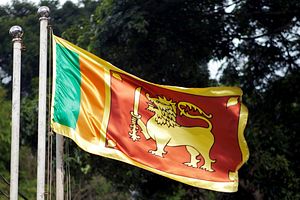Sri Lanka’s Office of Missing Persons (OMP) became operational on September 15. The OMP is one of Colombo’s four big transitional justice mechanisms – the others being an office to handle reparations, a truth commission and a judicial mechanism to address allegations of wartime abuses.
Colombo announced an impressive transitional justice agenda two years ago, yet far too little has happened since then. The other three mechanisms have yet to be established.
Ostensibly, an operational OMP is a step in the right direction. But, for now, the efficacy of the body remains an open question. For example, how will it be staffed and resourced? How independent will it be? Others have raised important constitutional concerns about the OMP.
Ruki Fernando, a Colombo-based human rights activist, has doubts about how much the OMP will be able to accomplish. “The OMP has the potential to find the truth about the fate and whereabouts of at least some of the disappeared persons, and lead towards criminal justice and reparations, but in the overall context it comes about, there is very little hope and confidence this could happen,” he notes. “A lot more will have to be done by the present government to build hope and confidence in the OMP.”
Here’s more from Fernando:
I spent last weekend, with some families whose loved ones had disappeared, from the 1980s to 2016. This was just after the latest announcement about the OMP. None of the families expressed enthusiasm, hope and confidence about the OMP or obtaining truth, justice and reparations in general. It’s understandable. The latest OMP announcement comes amidst reports of continuing abductions and disappearances in Colombo and the North in 2016-2017. It comes after reports of reprisals against a campaigning wife of a disappeared man and the intimidation of journalists covering a protest on disappearances. Tamil families of the disappeared have been at continuous roadside protests for seven months, in five districts in the North and East. But they have not received answers, despite reaching out to majority Sinhalese, coming to Colombo to talk to media, government officials and diplomats, and having had several meetings with various ministers. They managed to secure a meeting with the president after a determined five-hour-long blockade of the major highway to the North. But even the promise made by the president at that meeting to provide a list of those who surrendered to the Sri Lanka Army at the end of the war has not been kept for three months.
Time will tell if the operationalization of the OMP augurs a sincere commitment to a credible, comprehensive transitional justice process. What’s quite likely is that the timing of the president’s move is tied to the UN General Assembly, which opened its 72nd session on September 12. Sirisena is slated to speak today.
In short, this is probably more about cosmetic maneuvering, attempting to placate international actors and optics than anything else. “I still believe it is important to work towards a strong, independent, effective OMP, particularly through appointments and ensuring its legality is beyond doubt,” says Fernando. “It will be a mistake to discourage families from pursuing truth through the OMP, as much as it will be a mistake to prematurely raise hopes and praise the OMP ignoring the ground realities and overall context.”
The bottom line is that we don’t yet know how significant this latest piece of news is. What we do know is that – given all the false promises, empty rhetoric and contradictory statements from the coalition government – a heavy dose of skepticism is more than warranted.
*A version of this piece first appeared in Medium.

































